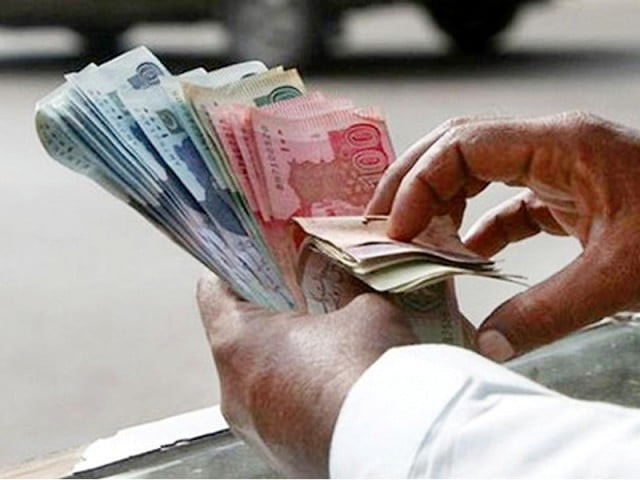Country needs to diagnose tax policy ills
System complexity encourages corruption, requires more time to pay tax

PHOTO: FILE
While the government’s efforts to curb terrorism and cope with energy shortfall are having some visible impact, fixing its taxation policies seems to be the most challenging. This is despite the fact that various task forces as well as several multilateral and bilateral donors have been spending considerable sums in carrying out studies and making recommendations.
Perhaps the main reason for the lack of progress is that the problems are not usually carefully identified before making the recommendations. Only when the diagnosis is carefully done, we can expect proper treatment to start.
According to the Tax Foundation, a US-based independent tax policy research organisation, the key principles of a sound tax policy are simplicity, transparency, neutrality, stability, no retroactivity, broad base and low rates.
How does Pakistan’s tax policy measures against each of these factors?
Simplicity
According to the World Bank (Policy Note 16 of June 2013), “the taxpayer system [in Pakistan] is complex. Most of the revenues – customs and general sales tax – are generated by trade. Customs regulatory duties are an example of complexity (as are sales and income taxes). Pakistan effectively applies some 40 tariff slabs.”
Read: The cry for tax reforms
Due to the complexity of the system, there is more corruption and the time required to pay taxes is more than twice that for Sri Lanka and India, and nearly four times that of Malaysia.
Unfortunately, recently there have been no efforts to simplify the tax regime. Instead, with each passing budget, the complexity is increasing. One example is the recent introduction of new 1% to 2% customs duty slabs on all goods, which will not yield much revenue but will complicate clearance process, increase corruption and enhance anti-export bias.
Transparency
According to the Tax Foundation, a good tax system requires that taxpayers be informed and understand how tax assessment, collection and compliance works. There should be open hearings, and revenue estimates should be fully explained and replicable.
As against this, our tax system is very secretive. It is not known how revenue estimates are made and frequently revised. Almost every tax measure comes as a surprise and is highly resented. Recent shutouts by the traders against 0.6% withholding tax are one example. An FBR advisory council exists but that is more an eyewash than a serious forum for consultations.
Neutrality
This principle implies that taxes should not encourage or discourage any economic decisions. The purpose of taxes should be to raise needed revenue, not to favour or punish specific industries, activities or products. Pakistan has one of the highest tariff dispersions in the world. We have always had high protective customs duty for some manufacturers, thus shielding them from healthy competition.
Almost 70% burden of taxes falls on manufacturing even though its share in GDP (30%) is less than that of services and agriculture.
Stability
Under this principle, tax laws should not be in constant flux as it makes long-range financial planning difficult. Although we have an annual ritual of budgetary measures, changes are made to the tax regime throughout the year. Whoever can exert enough pressure can get a waiver.
Furthermore, since meeting the ambitious revenue targets fixed at the start of the year is not easy because of low economic growth, taxes are raised at will during the year to meet the shortfalls.
No retroactivity
This principle implies that taxpayers should be able to rely with confidence on the law as it exists when contracts are signed and transactions are completed. In our case, it is more often flouted than respected. One recent example is that after the 3G/4G licences were auctioned, customs duty on networking equipment was doubled.
Read: The hidden deficit in Pakistan’s policies
Broad base and low rates
Our taxes are neither broad-based nor low. Whether it is sales tax, corporate income tax or customs duty, we have one of the highest rates in the world. For example, our standard rate of sales tax is 17% as compared to 12% in India and Sri Lanka, our corporate tax rate is 34% as compared to 30% in India and average customs duty rate is 20.67% as compared to 11.9% in India.
To summarise, Pakistan’s tax policies measure poorly against the well-accepted principles of sound tax policy. It is partially due to the fact that mostly taxation policy makers at the Federal Board of Revenue do not have a broader picture of the economy. While imposing a tax measure, it is very rare that any analysis is done as to how it would impact exports or competitiveness or overall growth.
There is a need to have more frequent consultations with the Competition Commission of Pakistan to avoid having undue influence of cartels. It is also important that all measures be benchmarked against successful economies.
The writer served as Pakistan’s ambassador to WTO from 2002-08
Published in The Express Tribune, September 28th, 2015.
Like Business on Facebook, follow @TribuneBiz on Twitter to stay informed and join in the conversation.


















COMMENTS
Comments are moderated and generally will be posted if they are on-topic and not abusive.
For more information, please see our Comments FAQ